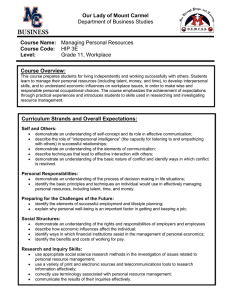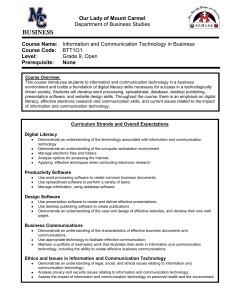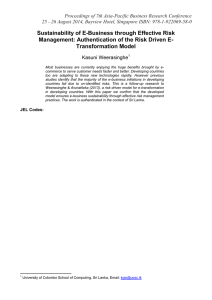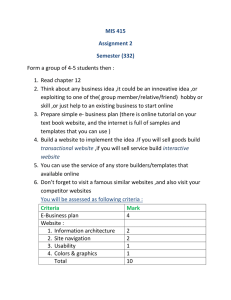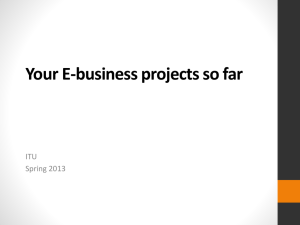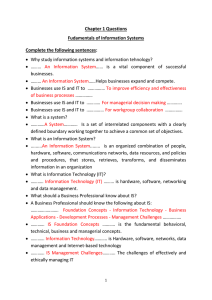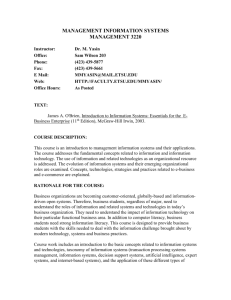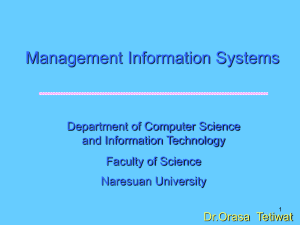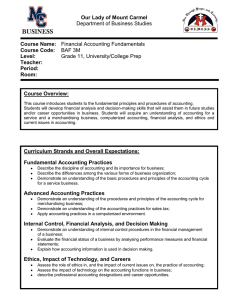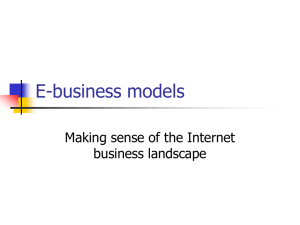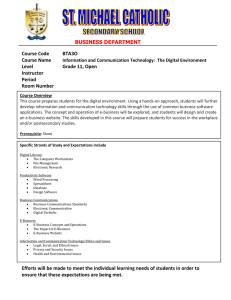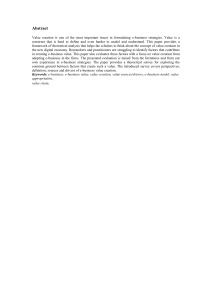Department of Business Studies The Digital Environment Grade 11, Open
advertisement
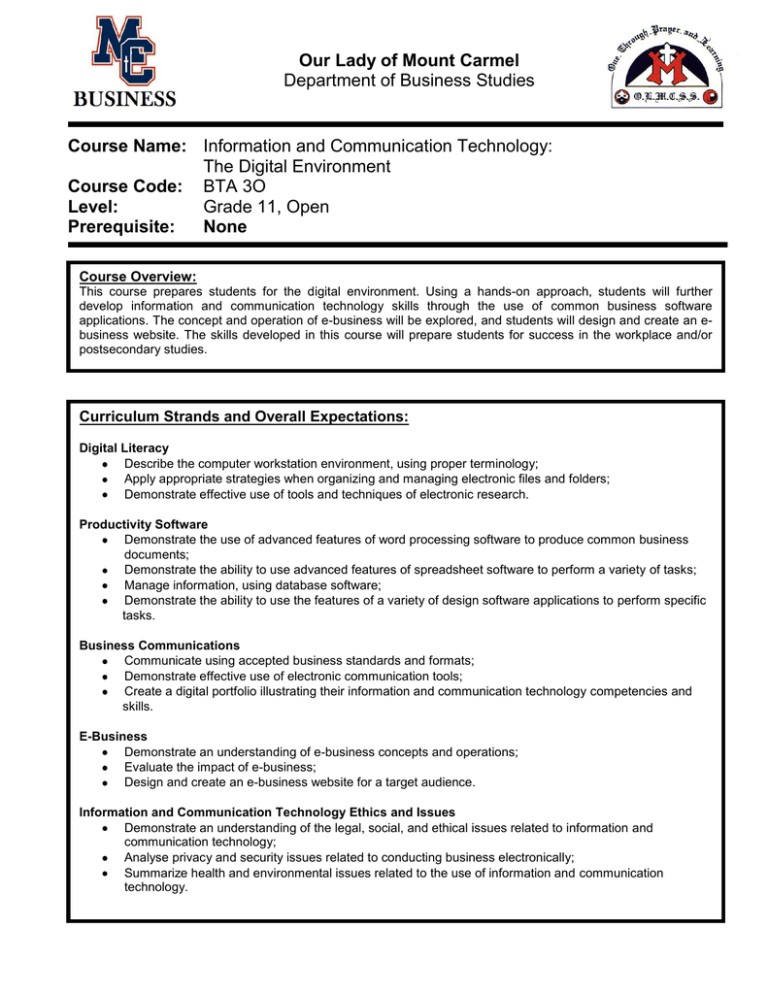
Our Lady of Mount Carmel Department of Business Studies Course Name: Information and Communication Technology: The Digital Environment Course Code: BTA 3O Level: Grade 11, Open Prerequisite: None Course Overview: This course prepares students for the digital environment. Using a hands-on approach, students will further develop information and communication technology skills through the use of common business software applications. The concept and operation of e-business will be explored, and students will design and create an ebusiness website. The skills developed in this course will prepare students for success in the workplace and/or postsecondary studies. Curriculum Strands and Overall Expectations: Digital Literacy Describe the computer workstation environment, using proper terminology; Apply appropriate strategies when organizing and managing electronic files and folders; Demonstrate effective use of tools and techniques of electronic research. Productivity Software Demonstrate the use of advanced features of word processing software to produce common business documents; Demonstrate the ability to use advanced features of spreadsheet software to perform a variety of tasks; Manage information, using database software; Demonstrate the ability to use the features of a variety of design software applications to perform specific tasks. Business Communications Communicate using accepted business standards and formats; Demonstrate effective use of electronic communication tools; Create a digital portfolio illustrating their information and communication technology competencies and skills. E-Business Demonstrate an understanding of e-business concepts and operations; Evaluate the impact of e-business; Design and create an e-business website for a target audience. Information and Communication Technology Ethics and Issues Demonstrate an understanding of the legal, social, and ethical issues related to information and communication technology; Analyse privacy and security issues related to conducting business electronically; Summarize health and environmental issues related to the use of information and communication technology. Assessment and Evaluation: Students will be assessed & evaluated according to the work produced & skills displayed. Methods of providing feedback may include assessing work in process & evaluating completed assignments, quizzes, tests, co-operative learning activities, investigations, and presentations. Term (70%): Knowledge and Understanding Thinking/Inquiry and Problem Solving Communication Application Final Course Grade 30% 20% 20% 30% Final Evaluation (30%): Formal Exam Final Culminating Task 20% 10% 100% Achievement Categories: Knowledge/ Understanding knowledge of facts and terms understanding of concepts, principles, and theories understanding of relationships between concepts Thinking/Inquiry critical and creative thinking skills (e.g., evaluating business situations; analysing and solving business problems; making decisions) inquiry skills (e.g., formulating questions; planning; selecting strategies and resources; analysing, interpreting, and assessing information; forming conclusions) Communication communication of information and ideas (e.g., through writing, visual and oral presentations) use of language, symbols, and visuals communication for different audiences and purposes (e.g., choice of language and style relevant to business environments) Application application of concepts, skills, and procedures in familiar contexts transfer of concepts, skills, and procedures to new contexts use of equipment, materials, and technology application of technology (e.g. choice of tools and software, ethical use) making connections (e.g. between use of various forms of personal experiences and the communication (e.g., memos, subject, between the subjects and letters, reports) the world outside the school Feedback will also be provided for student learning skills. Skills like working independently, team work, organization, work habits and homework, and initiative are assessed independently student achievement and will be conducted through the use of a rubric indicating specific criteria to be achieved to receive each of the following letter grades: E –Excellent G – Good S – Satisfactory N - Needs Improvement Achievement Levels: Level 1: 50 – 59% Limited knowledge and/or success Level 2: 60 – 69% Some knowledge and/or success Level 3: 70 – 79% Considerable knowledge and/or success Level 4: 80 – 100% Thorough understanding & mastery of skills Please refer to your Student Agenda for the following policies: Evaluation Attendance Uniform Student Textbook: Business Connections – Information Technology in Action. Replacement cost: $60.00 Student: (print name) _________________________________ Signature: ____________________________ Parent/Guardian Signature: _________________________________ Date: ____________________________
